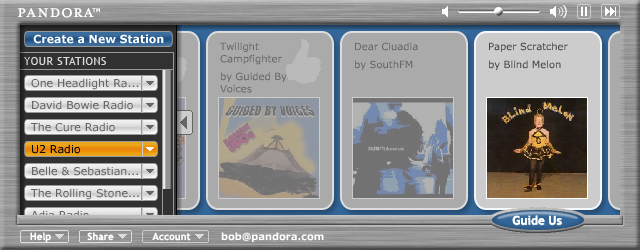Services are now integrating with other services, content with content housers, big companies gobbling up small startups, and the advertiser always running along trying to bring the point of sale closer to home (or to the mobile phone).
Oh, and there is a flashy new webpage technology that can handle it all.
Its might be fair to say that this Ultimate Portal Concept is crossing the mind of most companies out there. And although some companies have seemingly failed in being "everything at once", others seem to have an upper hand on bring it all together.
Its clear that one´s strategy is of utmost importance here. And as Rafat Ali puts it, in light of everythingitis there are still those that keep it "simple, and great at what they do". This principle seems to have stood the time, but among other implications, it postulates that the existing companies have that upper hand when faced with changes and competition.
 It is true that, when in comes to 2.0, the companies that do start trying for the homerun, end up short. As do the companies that that try to better what is already out there.
It is true that, when in comes to 2.0, the companies that do start trying for the homerun, end up short. As do the companies that that try to better what is already out there.The interesting twist is, the closest companies to being everything, aren´t companies that neccessarily directed themselves that way.
Facebook (already becoming a tired example) initiated subtle changes to their model that got them from a college network of friends to where they are today. Google specialized in one core service, before everything else. (Googlezon?)
So really, where does the strategy take you? Gary Hamel says there are only rule makers, rule takers, and rule breakers out there. Strategy must be subversive. Its revolutionary.
I think that we can conclude that, for the most part, being good at what you do is important, but thinking progressively is necessary.
More than likely, this new aggregation storm will take over your internet experience on a daily basis. Bringing everything together just makes logical sense. Yet, the potential consequences of such an idea are also bit scary. It means more power for the already able and established, not to mention the presence of the only consistency in the whole package: advertising.
Until something more revolutionary comes along.
See...
- Googlezon: the fictional company of the future
- Conflicts of Interest: Google Watch
- List of companies that essentially do the same thing: aggregate
- Gary Hamel: Strategy is Revolution







